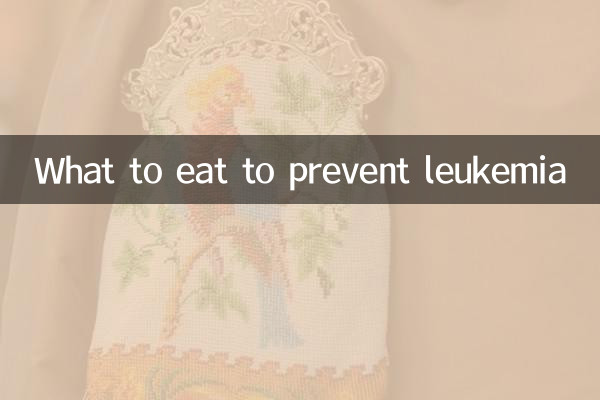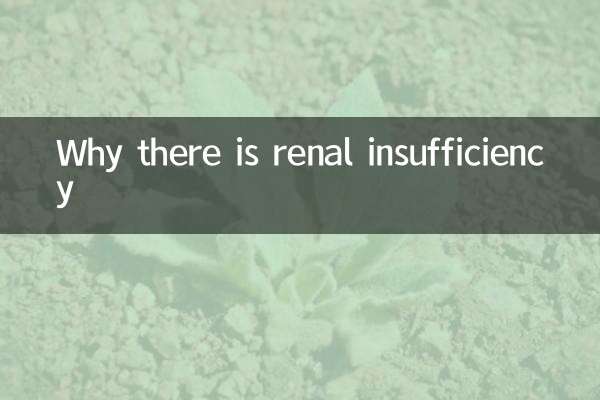What to eat to prevent leukemia: a scientific diet and health guide
Leukemia is a malignant tumor of the hematopoietic system, and its incidence has increased in recent years. Although the specific cause of leukemia is not fully understood, research shows that diet and lifestyle play an important role in preventing leukemia. This article will combine the hot health topics on the Internet in the past 10 days to provide you with a scientific dietary guide for leukemia prevention.
1. Key nutrients for leukemia prevention

The following table lists several key nutrients and their food sources that have been shown to be beneficial in leukemia prevention:
| Nutrients | preventive effect | best food source | Recommended daily intake |
|---|---|---|---|
| Vitamin C | Antioxidant, enhance immunity | Citrus fruits, kiwi, broccoli | 75-90mg |
| Vitamin D | Regulate cell differentiation | Salmon, egg yolks, fortified dairy products | 600-800IU |
| folic acid | Promote DNA repair | Dark green vegetables, legumes, whole grains | 400mcg |
| selenium | Antioxidant, anti-inflammatory | Brazil nuts, seafood, poultry | 55mcg |
| Flavonoids | Inhibit cancer cell growth | Berries, green tea, dark chocolate | no clear standard |
2. List of recent popular anti-cancer foods
According to the popularity data of major health platforms in the past 10 days, the following foods have received widespread attention due to their anti-cancer properties:
| food | Anti-cancer ingredients | research support | Recommended frequency of consumption |
|---|---|---|---|
| broccoli | sulforaphane | Multiple studies confirm its anti-cancer properties | 3-4 times a week |
| blueberry | anthocyanin | The antioxidant capacity is 50 times that of vitamin C | 1/2 cup daily |
| garlic | Allicin | May reduce risk of many cancers | 2-3 petals daily |
| green tea | Catechin | Inhibit cancer cell proliferation | 2-3 cups daily |
| Walnut | Omega 3 fatty acids | Reduce inflammatory response | 28g per day |
3. High-risk foods to avoid
In addition to increasing your intake of beneficial foods, it is equally important to reduce your consumption of certain high-risk foods:
| food category | Potential risks | alternative | suggestion |
|---|---|---|---|
| processed meat | Nitrite and other preservatives | Fresh poultry and fish | No more than once a week |
| High sugar foods | Promote inflammatory response | Fruit, natural sweeteners | Added sugar <25g daily |
| Fried food | produce carcinogens | Steamed and baked food | Try to avoid |
| alcoholic beverages | increased DNA damage | Alcohol-free alternatives | <2 cups/day for men, <1 cup/day for women |
4. Recently popular leukemia prevention dietary plans
Based on recent health trends, the following three dietary patterns are gaining attention for their cancer prevention potential:
1.mediterranean diet: Emphasize olive oil, fish, whole grains, and fresh fruits and vegetables, which have been shown in multiple studies to reduce cancer risk.
2.plant based diet: Mainly eating vegetables, fruits, beans and whole grains and reducing the intake of animal foods can help reduce inflammation levels.
3.intermittent fasting: By controlling eating time, it may help reduce oxidative stress and inflammatory response, but it must be done under the guidance of a doctor.
5. Expert advice and precautions
1.Balance first: No single food can prevent leukemia. The key is to establish a balanced and diverse diet.
2.Freshness first: Give priority to seasonal and fresh ingredients and reduce the intake of processed foods.
3.moderate exercise: Combined with 150 minutes of moderate-intensity exercise per week, it can enhance immune system function.
4.Regular physical examination: Especially high-risk groups should undergo routine blood tests regularly.
5.individual differences: Adjust your diet according to your own health condition and nutritional needs, and consult a nutritionist if necessary.
Remember, a healthy diet is an important part of preventing leukemia, but it's not the only factor. Many factors such as genetics, environment, and lifestyle work together. If you have specific health problems or a family history of the disease, it is recommended to consult with a medical professional to develop a personalized prevention plan.

check the details

check the details